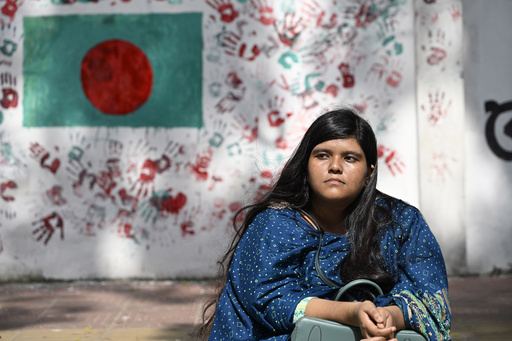Jannatul Prome, a 21-year-old student in Bangladesh, dreams of studying abroad due to the limited opportunities in her home country, where merit is not always rewarded, and prospects for young people are slim. The recent resignation and departure of Prime Minister Sheikh Hasina after 15 years in power have sparked hope among the youth, including Prome, for a transformed Bangladesh. The prime minister was ousted by young protesters who were tired of her autocratic rule that stifled dissent, favored the elite, and widened inequalities.
The protests initially began over government job quotas that reserved positions for descendants of veterans from Bangladesh’s war of independence, with protesters claiming these quotas mainly benefitted supporters of Hasina’s Awami League. This movement was significant as civil service jobs are stable and well-paying in a country where economic growth has not created enough professional opportunities for the educated middle class. Generation Z led the uprising, unapologetically challenging the status quo and old traditions tied to the quota system.
The youth’s defiance was evident when Hasina dismissed their demands, leading to intensified protests and clashes with security forces. The protests broadened into a larger movement against Hasina’s regime, with young people being at the forefront. Many of these protesters have only known Hasina as their prime minister and are less influenced by the narratives of the past, seeking change and new leadership in Bangladesh.
Despite its economic progress, Bangladesh faces challenges like widespread youth unemployment and a shrinking middle class, prompting many to seek opportunities abroad. The resignation of Hasina has brought a mix of joy and uncertainty among the protesters, as Nobel laureate Muhammad Yunus assumes an interim leadership role to guide the country towards stability and prepare for future elections without the dominance of old political elites.
The young protesters hope for institutional reforms and the emergence of new political forces to lead the country forward, aiming to avoid replacing one dictatorship with another. While labeled as the “I hate politics” generation, these youths are more accurately against divisive politics in Bangladesh and are cautiously optimistic about the possibility of real change in their country. They recognize the challenges ahead but believe in the potential for the impossible to become possible, sparking a newfound hope for a brighter future in Bangladesh.
